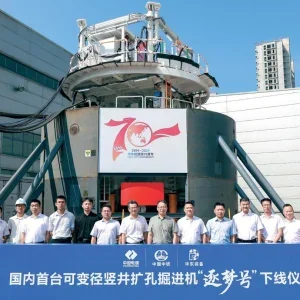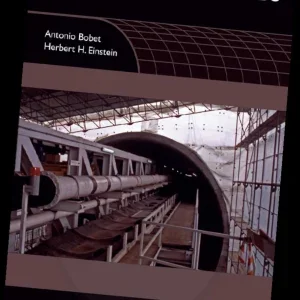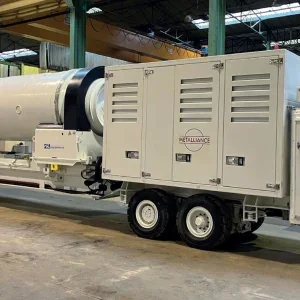The deployment of expert evidence can be a very costly exercise and so one would only see such an appointment in the most formal of processes, that is, either in litigation in the courts or in arbitration. In common law, adversarial legal systems there will be a tendency for each side to appoint its own experts, in civil law jurisdictions there is more of a willingness to have court-appointed, or in arbitration, tribunal-appointed experts. The relative merits of the two approaches is dealt with later. Remaining with the scenario where each party appoints its own experts, depending on the case being put, there will likely be several experts on each side dealing with their own specialisation. In a typical tunnelling project action therefore there could be experts for delay analysis, quantum (money), geotechnical, equipment, linings and many others.
Misunderstandings and tensions
The role of the expert can often be misunderstood and particularly by the lay-members of a party’s management where the perception may well be that, ‘we are paying good money for this person’s opinion, so that opinion had better support our case!’ If it were ever the case that an expert was simply the ‘hired gun’ of the party then that is certainly not the case in modern practice in litigation and arbitration where it is clear that an expert’s overriding obligation is to inform and advise the court or tribunal in his or her given area of expertise. Note that this includes even where that opinion may be adverse to the case being presented by the party paying the expert’s fees.
This tension can be added to by a parallel role that an expert may perform which is one of acting as a party’s ‘candid friend’, that is, giving honest opinions outside of the dispute forum on the relative strengths and weaknesses of the party’s case. It is fair to say that it takes some amount of skill on the part of an appointed expert to draw the fine line between these potentially competing roles.
My own way of resolving some of these misunderstandings and tensions is to explain to lay clients that, certainly in modern practice, if an appointed expert is seen to be acting with bias or as simply as another advocate of the party’s case then it is likely that the experts testimony will either be given less weight or in some cases disregarded altogether. Seen in this light it is the expenditure on an over-partisan, rather than independent, expert which would be a waste of the client’s money.
Single joint expert
The proposal to use court/tribunal appointed experts can therefore seem like an obvious saving of expense, why have two opposing experts (or more in multi-party litigations) in each discipline when one can have one expert feeding in, what in any case, needs to be impartial advice? There is some merit in that view and as noted previously is a route taken more often in civil law jurisdictions where a judges/arbitrator’s role is much more inquisitorial than the adversarial approach taken in common law actions. There are three counters to the argument. Firstly, it is unlikely that a judge/arbitrator would go against any advice, on technicalities at least, given by the court/tribunal appointee, in heavily technical construction and engineering disputes then there may seem little point in the expense of involving the judge/arbitrator at all when one could go directly to the expert for the answer, indeed there is facility for such dispute resolution known as ‘expert determination’. Secondly, insofar as the common law adversarial system is concerned at least there is much suspicion and resistance to so much weight being given to a single expert without the ability to question that expertise. Thirdly, court/tribunal appointees are unable to fulfil to the same extent the very valuable role of party appointed experts in narrowing the issues in dispute, this contribution is dealt with in further detail below.
Value added by party appointed experts
Great value can be realised by party appointed experts narrowing the issues which need to be decided by a court or arbitration tribunal. By approaching matters with the necessary measure of impartiality experts can, through a series of expert-to-expert meetings prior to a hearing, come to agreements where they can on technical matters. The more that can be agreed in these sessions the less is left to be argued in full in court or in an arbitration hearing with consequent significant savings in the time and expense of those hearings. This is particularly so in the case of the quantum experts who can reach agreements on what a particular issue is worth in monetary terms on a ‘figures-as-figures’ basis, leaving the judge or tribunal to decide only on the principle without having to delve into the minutia of the figure-work. Of course close liaison is required between the expert and the party’s lawyers/dispute managers to make sure that the client knows what concessions are being made on its behalf.
Considerations in taking expert appointment
Whilst many construction and engineering professionals see getting into expert witness work as a lucrative option, careful consideration should be given before accepting appointments as an expert. Firstly, it should be ensured that there are no conflicts of interest between the expert appointment and other work being carried out by the expert themselves or their firm. This sounds straightforward enough but when one undertakes such a conflict review one realises how closely inter-connected everyone is in a specialist sector such as tunnelling. Whilst other assignments being undertaken by colleagues in a firm will not automatically preclude taking an expert appointment, a potential expert should make known all such potential conflicts to the prospective client; imagine the scenario where such potential conflicts are not declared and several months later when, having already expended much effort and collected substantial fees, the conflict then becomes a real issue.
Secondly, a potential expert should really question whether he or she has the necessary expertise in the area under dispute, there will be a continuing duty for the expert to keep this aspect under review and as the case develops in order to avoid ‘mission creep’, that is holding oneself out as having, or being persuaded that one has, sufficient expertise to give testimony on a matter which is in truth outside of one’s professional experience. Aside from this duty to one’s client any lack of expertise will soon become apparent under cross-examination.
An appointed expert must become thoroughly familiar with all the aspects of a case relevant to his or her area of expertise, that will mean reading all the relevant pleadings in the case, relevant witness statements from witnesses of fact and of course the reports and testimony of opposing experts. An expert must continually test their own opinions in the light of all such other submissions and testimony and have the courage of his or her convictions to change that opinion in the light of new submissions or evidence.
Familiarity with process
Whilst an expert is obviously called to give his or her professional opinion some familiarity with the dispute resolution process, be it in court or arbitration, is necessary. Some guidance will be given by the lawyers but there is an onus on the expert themselves to do either their own reading on the subject or indeed attend one of the many courses organised for the training in the role of expert witness. In an arbitration an understanding of the context of that arbitration will be required by way of familiarity with the rules under which the arbitration is being conducted and relevant parts of the arbitration law of the ‘seat’ of the arbitration. In litigation there are likely to be court procedural rules dealing with the giving of expert evidence, for example in England this will be according to the Civil Procedure Rules (CPR), Rule 35 of which, together with its Practice Directions stipulates the requirements for the giving of expert testimony in the High Court.
Professional reputation at risk
A potential expert might also wish to consider their professional reputation before embarking upon the giving of expert testimony. Any report or statement submitted by the expert will be the subject of cross-examination by the other side, that will of course mean the expert being on the witness stand in front of the court or tribunal and being subjected to questioning by the opposing side’s lawyer. It is fair to say that the priority of such advocates will be to get a ‘result’ for their client even if that means seeking to undermine the expert’s professional reputation in the process, it is not personal, it just seems that way! On occasions too, some judges have taken it upon themselves to completely pillory individual experts on their testimony, these comments will make their way into the published law reports for all the world to see, and I suppose because of the personal nature of such attacks these types of judicial comment gain almost instant notoriety. Whilst this type of judicial censure will usually be reserved for those experts who have acted contrary to the expected standards of independence they do cause an obvious black mark against a professional persons reputation.
Further, one should guard against undertaking too much expert work or one might get the reputation of being a ‘professional expert’, that is someone who only does expert witness work and seldom if ever actually does any work in his or her professed field of expertise. There can be a tendency by the lawyers in particular to place over-emphasis on the expert having given evidence under cross-examination and ‘preformed well’ in so doing and whilst this can be an important factor it is not the only one. There is a body of opinion that says that the true experts are those who do the job day-in-day-out, not someone who is on the expert witness ‘circuit’. Also, logically there must be a first time that anyone does something and so if previous experience of cross-examination is always the main factor for expert selection then one ends up with a very small pool of opinion.
Conclusion and judicial guidance
So what guidance can be provided to avoid some of the pitfalls of giving expert evidence outlined above? Whilst it will not directly apply to all dispute fora or jurisdictions, one could do worse than to act according to seven principles outlined in English case known as the Ikarian Reefer[1] which Creswell J stated as being:
The duties and responsibilities of an expert witness in civil cases include the following:
1. Expert evidence presented to the court should be, and should be seen to be, the independent product of the expert uninfluenced as to form or content by the exigencies of litigation.
2. An expert witness should provide independent assistance to the court by way of objective, unbiased opinion in relation to matters within his expertise. An expert witness in the High Court should never assume the role advocate.
3. An expert witness should state the facts or assumptions upon which his opinion is based. He should not omit to consider material facts which could detract from his concluded opinion.
4. An expert witness should make it clear when a particular question or issue falls outside his expertise.
5. If an expert’s opinion is not properly researched because he considers that insufficient data is available, then this must be stated with an indication that the opinion is no more than a provisional one. In cases where an expert witness, who has prepared a report, could not assert that the report contained the truth, the whole truth and nothing but the truth without some qualification, that qualification should be stated in the report.
6. If, after exchange of reports, an expert witness changes his view on a material matter having read the other side’s expert’s report or for any other reason, such change of view should be communicated (through the legal representatives) to the other side without delay and when appropriate the court.
7. Where expert evidence refers to photographs, plans, survey reports or other similar documents, these must be provided to the opposite party at the same time as the exchange of reports.
Role of the Expert Witness






